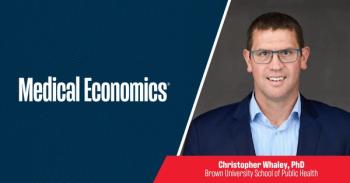
Health care usage increases, medical bill worries decrease when adults enroll in Medicare
Survey examines differences between low-income adults at ages 64 and 66.
Health care usage increases and medical bill worries decrease when low-income adults without health insurance are able to enroll in Medicare.
The findings were part of a
The results could influence federal lawmakers’ debates on expanding Medicare insurance eligibility by lowering the age when people may apply, and on improving health equity across the nation.
Currently, Medicare provides health insurance to more than 50 million older adults in the United States. More than 40% of U.S. adults below the age of 65 years are either uninsured or inadequately insured, coauthor Rishi K. Wadhera, MD, MPP, MPhil, said in a
“The majority of Americans only become eligible for Medicare insurance coverage at age 65 years, and our findings suggest that this transition is associated with significant improvements in health care access, affordability, and reductions in financial strain for low-income adults, and to a lesser extent, among higher-income adults,” said Wadhera, an assistant professor of medicine at Beth Israel Deaconess Medical Center in Boston. “As policymakers debate whether to expand the Medicare program, our study provides evidence that lowering the age of Medicare eligibility may advance
The researchers looked at three factors and found substantial changes between the age groups for low-income patients at or below 300% of the federal poverty level, and above that level.
Researchers examined access outcomes, including recent physician visits, delayed medical care due to costs, or needed medical care that patients did not get due to costs. Among the low-income 64-year-olds, 14.7% delayed care and 15.5% avoided care due to costs, while among the 66-year-olds, 5.9% delayed care and 6.2% avoided care due to costs, the study said.
They also considered financial strain outcomes such as problems paying medical bills, inability to pay those bills or worrying about covering costs if a person got sick or had an accident. At age 64, 66.5% of the low-income adults worried about medical bills and 33.9% had difficulty paying medical bill, but those percentages dropped to 51.1% and 20.6%, respectively, for the 66-year-olds.
The findings were more modest and less consistent for adults with incomes greater than 300% of the federal poverty level. Medicare eligibility did not affect percentages of low-income or high-income adults’ prescription medication outcomes, such as skipping doses, taking less, or delaying filling doses to save money, or not getting prescription drugs due to costs, according to the study.
The authors noted there are increasing income-based inequities in health in the United States and
“Medicare eligibility and healthcare access, affordability, and financial strain for low- and higher-income adults in the United States: A regression discontinuity analysis,” was published Oct. 4, 2022, in PLoS Medicine.
Newsletter
Stay informed and empowered with Medical Economics enewsletter, delivering expert insights, financial strategies, practice management tips and technology trends — tailored for today’s physicians.






